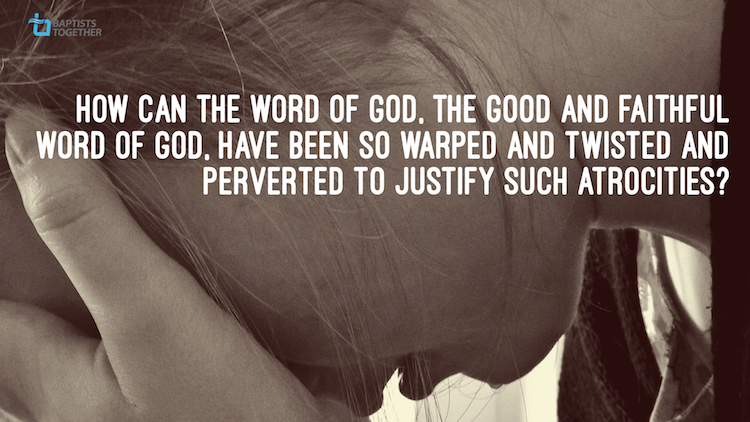16th November 2017

Except during my pregnancies, I have never been a weepy sort of person. I can sit quite calmly through sad films, while men and women blub around me. I don’t ‘do’ sentimental movies or slushy books. I don’t think I’m particularly hard-hearted; just not very emotional. And maybe my previous medical background has something to do with it. In an emergency situation, you want a doctor who will push the emotions to the back of their mind and get on with trying to save your life.
So I was caught hugely unawares a few weeks ago when a book I was reading moved me to tears – not just ‘leaking at the eyes’ as my husband calls it, but deep gut-wrenching sobs. I was away in London at the time, doing some lecturing; and in the evening I treated myself to a meal out at a little Lebanese restaurant. As I usually do when eating alone, I got out a book and started reading it. The volume in question was ‘Laying Down the Sword’ by Philip Jenkins, a book which examines the violent texts of the Bible.
Now, I spend a lot of time thinking about these texts and how they should be interpreted. And I’m not naïve about the ways that they’ve been used to justify violence in more recent times. But something about this book really caught me in the gut.
I think what got me was the sheer number of instances which the author had collected together. It went on for page after page after page after page. The use of these texts to justify crusade and colonialization, military conquest and ethnic cleansing, eugenics and religious persecution, acts of homophobia and genocide.
I paid the bill and staggered back to my hotel, and when I got there I wept and wept. How can the word of God, the good and faithful word of God, have been so warped and twisted and perverted to justify such atrocities? And how can we, the church, try to prevent such things from ever happening again in the name of the Bible?
It is this question which inspired my choice of subject for the Whitley lecture, and it is this incident which has sent me back to my preparation with fresh vigour and determination. I have chosen the subject because I truly believe it is important. Bad theology can make people kill each other. Bad readings of the Bible can do the same. How we read these texts really, really matters.
So I continue to grapple with the issue. The written version of the lecture is almost finished now, and the first dates for delivering it are booked into next year’s diary. What I have to say will not be a final word on the matter – it will not even be my final word on the matter. But I hope it will stimulate thought and discussion, and that it will cause those who read or hear it to consider carefully the pressing question: how do we read the Old Testament texts of violence ethically?
This blog is part of series, please click here to read more.
For more about the Whitley lecture.
The 2017 Whitley Lecture is entitled the
The Pioneering Evangelicalism of Dan Taylor (1738-1816) by Richard Pollard, Minister and Team Leader, Fishponds Baptist Church, Bristol. It is available from
Regent's Park College.
The 2016 Whitley Lecture was
Church Without Walls: Post-Soviet Baptists in the Ukranian Revolution 2013-14 by Joshua Searle, Tutor in Theology and Public Thought and Assistant Director of Postgraduate Research at Spurgeon's College
.